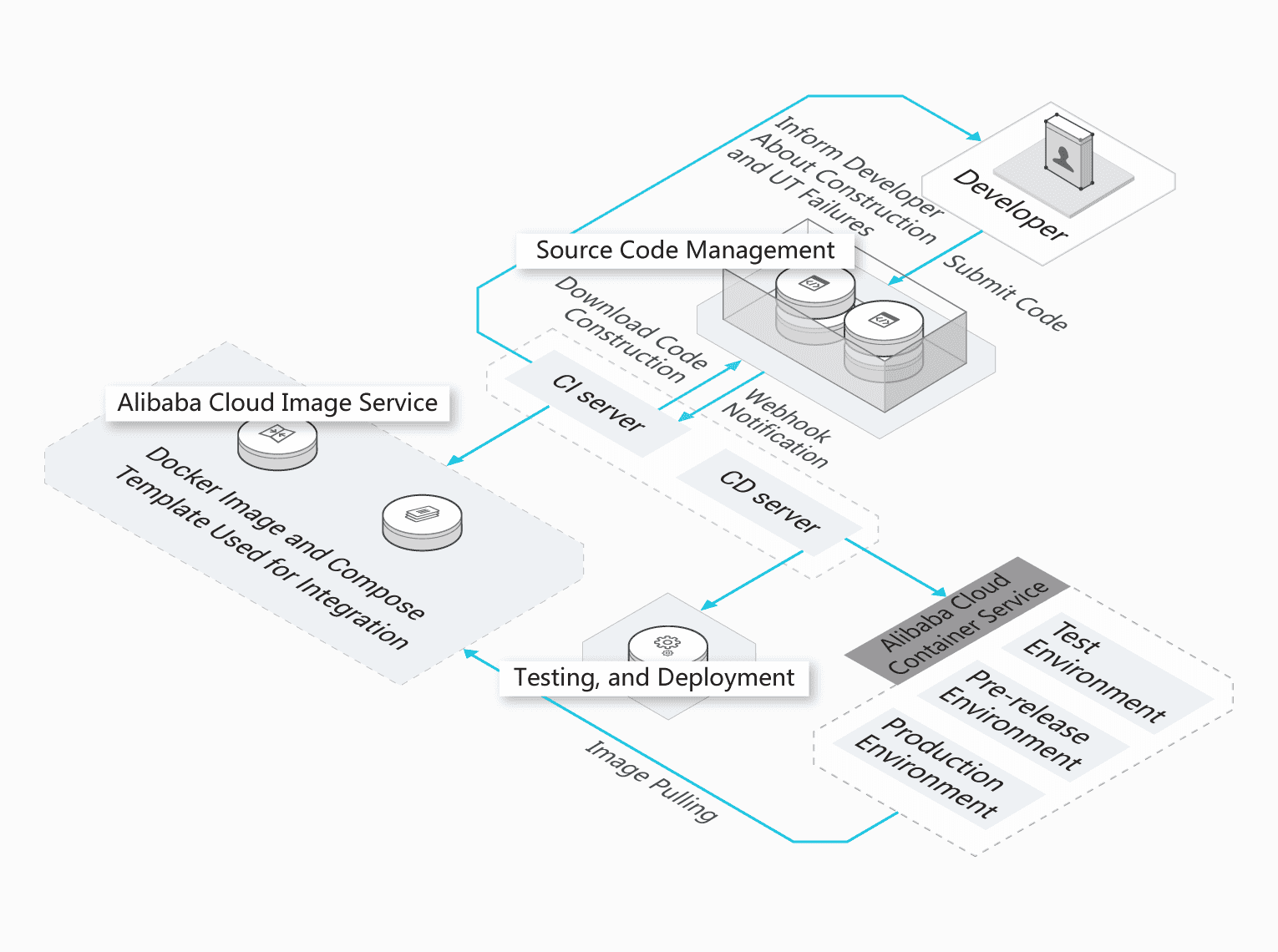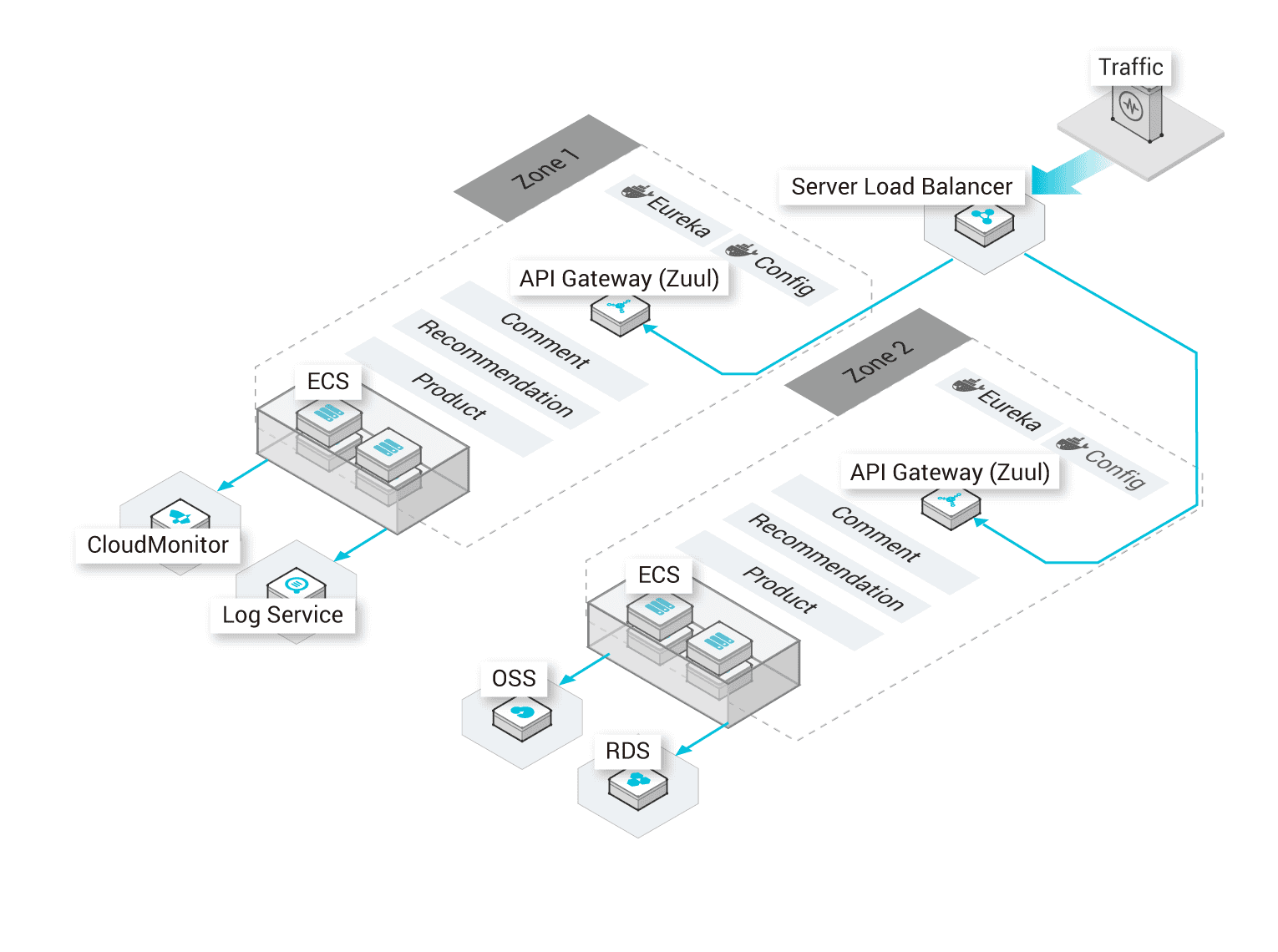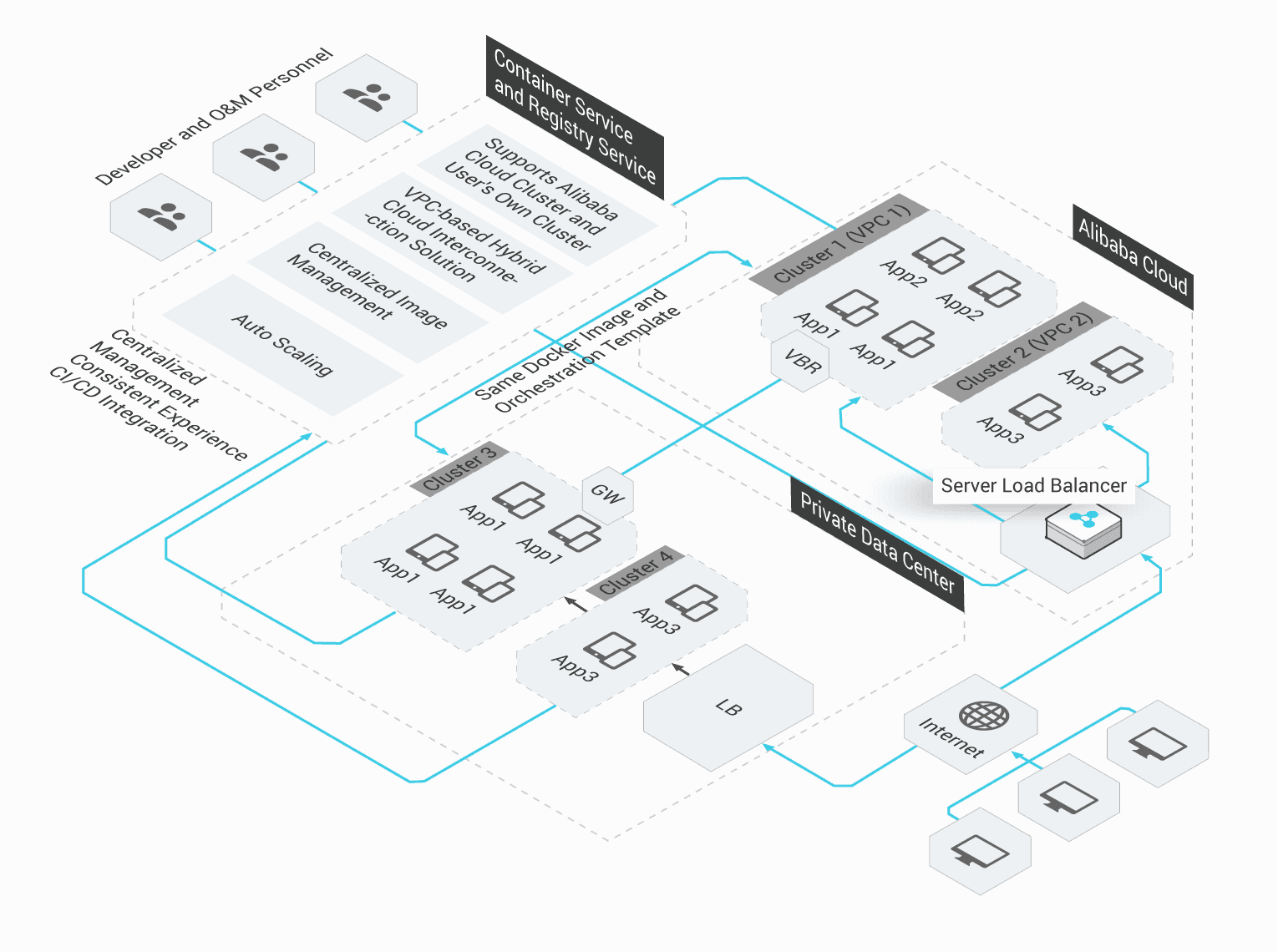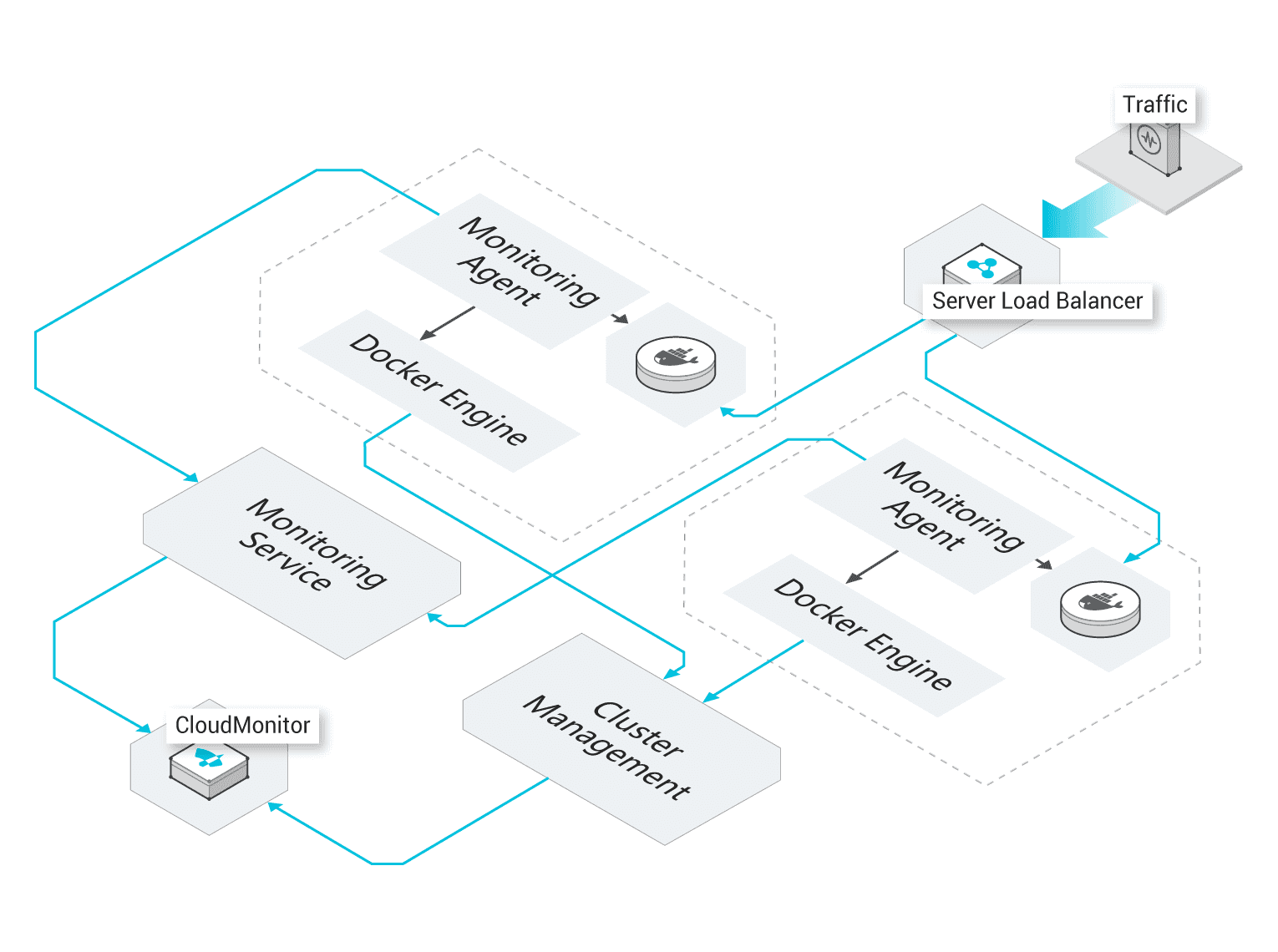Alibaba Cloud Container Service for Kubernetes (ACK) is one of the first services to participate in the Certified Kubernetes Conformance Program. ACK provides high-performance management services for containerized applications. You can manage enterprise-level containerized applications throughout the application lifecycle. This service allows you to run containerized applications in the cloud efficiently.
1.Supports phased release, blue-green release, application monitoring, and application autoscaling.
2.Provides a built-in application store that allows you to deploy applications with a few clicks by using Helm.
3.Supports Service Catalog to simplify cloud service integration.
1.Provides high availability and high concurrency of image pull requests.
2.Supports accelerated image retrieval.
3.Supports large-scale P2P image distribution. By using the optimized image distribution process, ACK can automatically distribute images to a maximum of 10,000 nodes. This improves the distribution efficiency by four times.
1.Allows you to collect logs and deliver the collected logs to Log Service.
2.Supports the integration with third-party open-source logging solutions.
1.Supports both container-level and VM-level monitoring.
2.Supports the integration with open source monitoring solutions from third-party providers.
1.Provides a high-performance plug-in to assign elastic network interfaces (ENIs) to pods. The performance of this plug-in is 20% higher than that of regular network solutions.
2.Supports container access policies and throttling.
1.Supports Alibaba Cloud disks, Apsara File Storage NAS volumes, and Object Storage Service (OSS) buckets, and provides standard CSI drivers.
2.Allows you to dynamically create and migrate volumes.
Allows you to create public-facing and internal Server Load Balancer (SLB) instances.
The optimized continuous delivery pipeline
Container Service integrates with Jenkins to automate the DevOps pipeline that ranges from code submission to application deployments. The pipeline ensures that code is submitted for deployment only after passing automated testing, and provides a better alternative to traditional delivery models that involve complex deployments and slow iterations.
Benefits
Related services
ECS

Agile development and deployment to speed up the evolution of business models
Your workload in the production environment is divided into multiple microservice applications, which are managed by Alibaba Cloud image repositories. Alibaba Cloud can schedule, orchestrate, deploy, and implement the canary releases of microservice applications and you only need to focus on feature updates.
Benefits
Related services
ECS, ApsaraDB for RDS, and OSS

Unified O&M of cloud resources
You can centrally manage cloud and on-premises resources in the Container Service console. Containers hide the differences between infrastructures. This enables you to use the same images and orchestration templates to deploy applications in the cloud and on-premises.
Benefits
Related services
ECS, VPC, and Express Connect

Traffic-based scalability
Container Service enables workloads to auto-scale their resources based on traffic. This prevents traffic spikes from bringing down your system and eliminates idle resources during off-peak hours.
Benefits
Related services
ECS and CloudMonitor

Creating Effective Architectural Diagrams and Coding Complex Applications

2,593 posts | 792 followers
FollowAlibaba Container Service - November 21, 2024
Hironobu Ohara - February 3, 2023
Farruh - March 29, 2023
Alibaba Container Service - April 8, 2025
Alibaba Clouder - July 15, 2020
Alibaba Container Service - December 5, 2024

2,593 posts | 792 followers
Follow Container Service for Kubernetes
Container Service for Kubernetes
Alibaba Cloud Container Service for Kubernetes is a fully managed cloud container management service that supports native Kubernetes and integrates with other Alibaba Cloud products.
Learn More ACK One
ACK One
Provides a control plane to allow users to manage Kubernetes clusters that run based on different infrastructure resources
Learn More Cloud-Native Applications Management Solution
Cloud-Native Applications Management Solution
Accelerate and secure the development, deployment, and management of containerized applications cost-effectively.
Learn More Container Registry
Container Registry
A secure image hosting platform providing containerized image lifecycle management
Learn MoreMore Posts by Alibaba Clouder